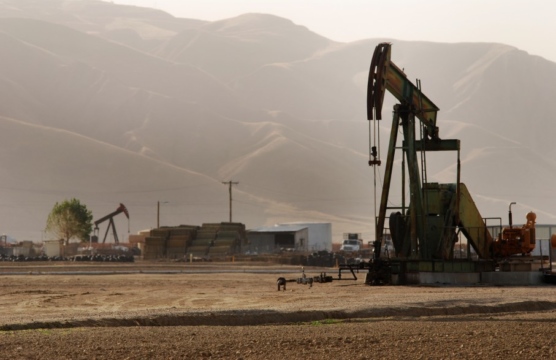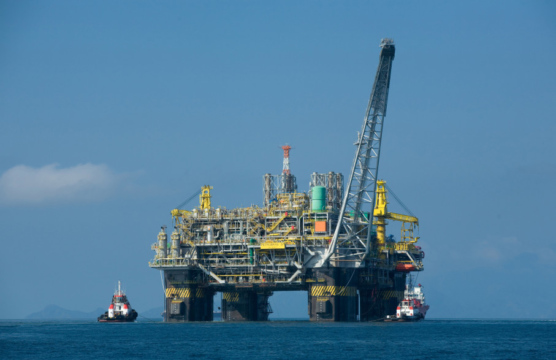The Nationalism of Cristina Fernández de Kirchner
Argentine President Cristina Fernández has increased her appeals to nationalist sentiment to build domestic political support.
The election of President Mauricio Macri may signal the start of a new era in Argentine energy policy and cooperation with the United States, but the new government still faces challenges to increasing oil and gas production and erasing energy subsidies, according to a panel at the Inter-American Dialogue featuring remarks by Argentine Ambassador to the United States Martín Lousteau.
Within weeks of taking office, Macri lifted capital controls, managed a currency devaluation and removed most export duties. He has reached deals with many of Argentina’s creditors to improve the country’s access to international capital markets and plans to raise $15 billion through a bond issue, which the government will use to pay creditors and finance its large budget deficit.
The new investment climate is expected to bring fresh capital to the oil and gas sector to help boost development of Argentina’s vast shale reserves. Indeed, lack of access to international capital has been one of the top constraints to developing Argentina’s Vaca Muerta shale play, Lousteau said.
One of the government’s priorities has been to liberalize energy prices. Since oil prices collapsed, Argentina has maintained domestic oil prices at around $70/bbl to keep the industry afloat. But the new administration plans to align domestic fuel prices with international oil prices, and Lousteau indicated that the government may reduce domestic prices later this year if global crude prices remain low.
The Macri administration has also made important changes to energy sector leadership, appointing the former head of Shell Argentina Juan José Aranguren as energy minister and Miguel Gutiérrez as the new Chairman of national oil company YPF. Macri's decision to change the company’s leadership and separate the roles of chairman and CEO may increase investor confidence, said Juan Cruz Díaz, Managing Director at Cefeidas Group in Buenos Aires. The divided roles will limit the president's influence, protecting the interests of some shareholders, and increase transparency, Díaz said.
Jed Bailey, Managing Partner at Energy Narrative and lead author of a new Inter-American Dialogue report on shale regulation in Latin America also said that striking a balance between transparency and the protection of trade secrets could prove challenging as Argentina develops its unconventional hydrocarbon resources.
This issue has taken center stage in Argentina in recent months, with a Supreme Court decision mandating that YPF fully disclose the terms of its 2013 contract with Chevron. Ambassador Lousteau said that while parts of the contract should be disclosed, revealing the conditions that the first investor received could put YPF at a disadvantage, as these conditions are usually more favorable than those for subsequent investors.
There may also be important changes in the electric power sector. In recent years, Argentina has seen repeated blackouts as the government had set the price of electricity below the cost of generation, which discouraged infrastructure investment and encouraged higher energy consumption. The low electricity rates were also extremely costly to the government - energy subsidies had reached 2.9% of GDP and 12% of all federal spending in 2014.
In December, the Macri administration declared a state of emergency for the national electricity system through December 2017. And in January, the government slashed subsidies and introduced new wholesale prices for power nationwide. This could triple electricity bills for many consumers in the Buenos Aires area but also makes the sector more attractive for investment. Lousteau said electricity subsidies would be further cut this year.
Macri’s election may also signal a new era in US-Argentina cooperation. President Macri and US Vice President Joe Biden discussed energy cooperation in Davos in January, and energy is expected to be on the agenda of President Obama’s upcoming trip to Argentina. The United States and Argentina can also work together on renewable energy and power sector integration, advancing their ambitious climate change agendas and on sharing best practices for unconventional oil and gas development, said Robin Dunnigan, Deputy Assistant Secretary for Energy Diplomacy at the US State Department's Bureau of Energy Resources.
Panelists agreed that while Argentina’s energy sector faces many challenges, the new leadership is well-positioned to take advantage of Argentina’s abundant resources. President Macri’s promises to normalize exchange rates, increase electricity prices and eliminate trade restrictions may imply short-term costs, but are focused on yielding long-term benefits, said Ambassador Lousteau.
Argentine President Cristina Fernández has increased her appeals to nationalist sentiment to build domestic political support.
Think-tank Inter-American Dialogue recently held a closed-door event which brought together Colombia’s new mines and energy minister, Tomás González, with CEOs, industry association heads and regulators.
In the first of a two-part series, Inter-American Dialogue’s energy, climate change and extractive industries program director Lisa Viscidi talks to BNamericas about how the Colombian government is looking to increase oil reserves and maintain competitiveness as Mexico opens its hydrocarbons market.
Oil and gas production in the United States and Canada has increased considerably since 2008.


